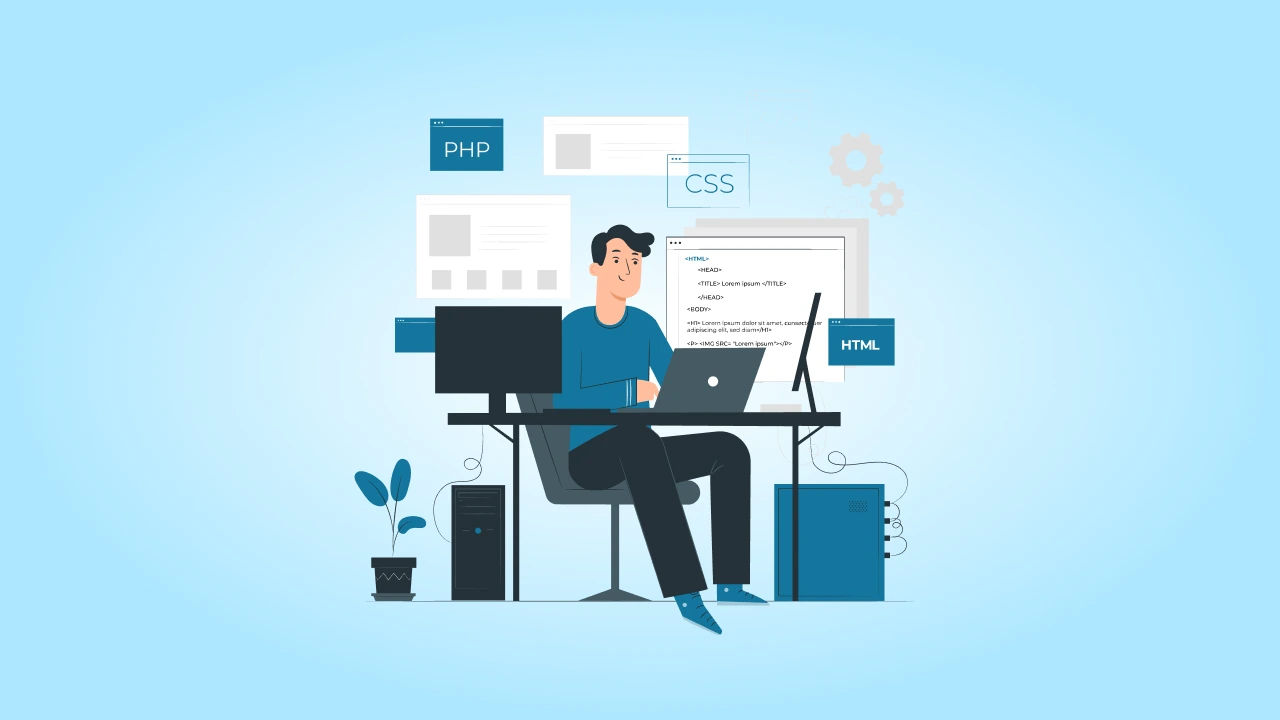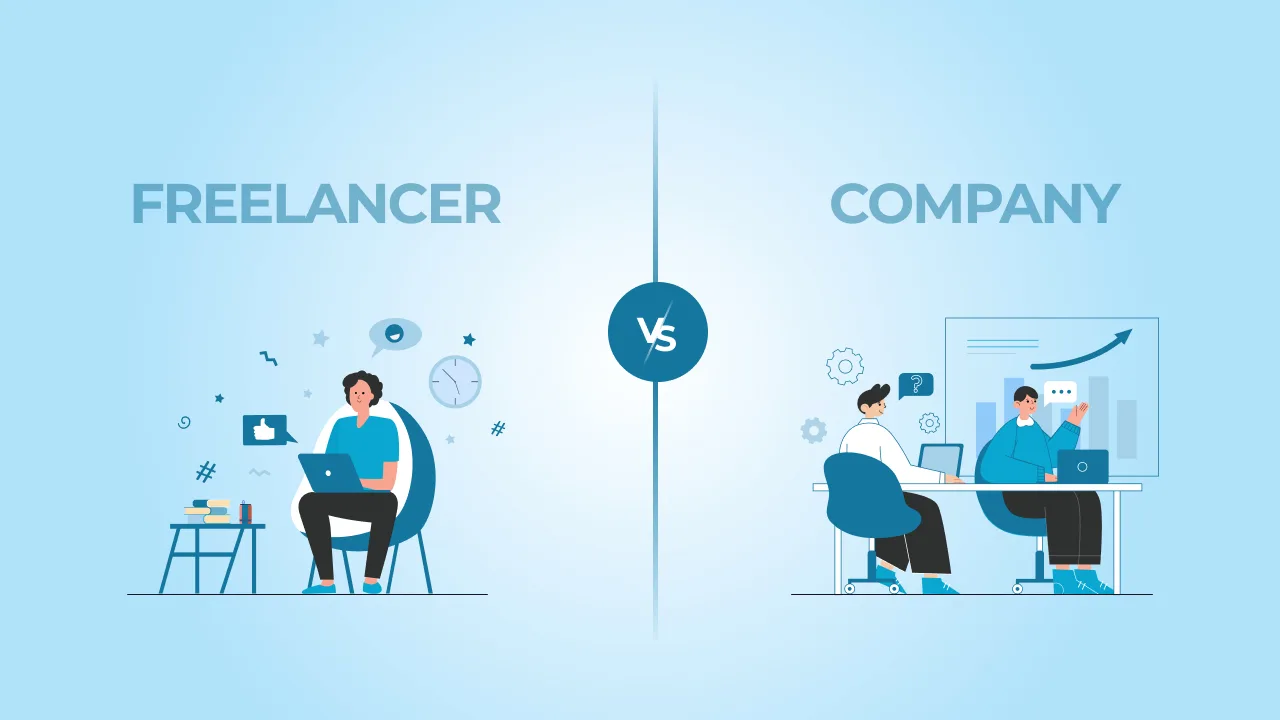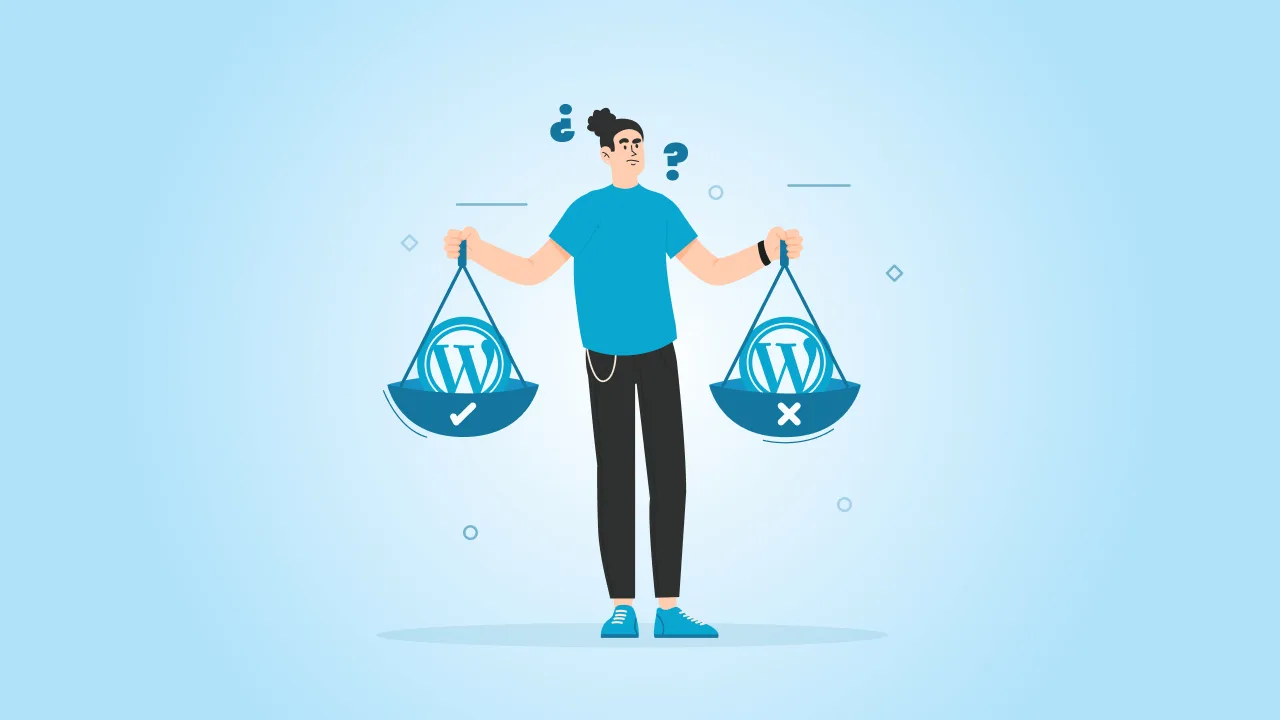Imagine building a house with just one contractor who can handle everything—designing, wiring, plumbing, and more. This is the value a full-stack developer brings to software development. They’re the all-rounders of the tech world, skilled in building both the front end (what users see and interact with) and the back end (where data and functionality work behind the scenes).
So, why are full-stack developers in such high demand? Think of how helpful it is to have one person who understands the entire process and can jump in wherever needed. Full-stack developers can take a project from concept to completion without needing multiple handoffs or different teams. For companies, this flexibility means fewer bottlenecks, lower costs, and quicker development timelines.
- The benefits of hiring a full stack developer and how they can streamline your project,
- The essential skills that make a full-stack developer effective, and
- A simple hiring guide to help you choose the right candidate for your team.
Whether you are a business looking to hire or someone considering a career in development, this guide will show you why full-stack developers are such a valuable asset.
Let’s start with some basics!
What is a Full Stack Developer?
A full-stack developer is like a “jack of all trades” in the world of software development. Instead of focusing on just one area, they’re skilled in working with both the front-end and back-end of applications.
- Front-End Development: This is the user-facing part of a website or app—the buttons, layout, text, colors, and anything else you see and interact with. Full-stack developers work with front-end tools and languages like HTML, CSS, and JavaScript (and often frameworks like React or Vue), which allow them to design interactive and user-friendly interfaces.
- Back-End Development: This is the part of the app that powers everything you don’t see. It’s where data is processed, stored, and sent back and forth between the user’s screen and the server. Full stack developers often work with languages and frameworks like Node.js, Python, Ruby on Rails, and PHP to manage the server, application logic, and database interactions.
- Database Management: Full stack developers also work with databases like MySQL, PostgreSQL, or MongoDB to organize and retrieve information. This is essential for creating applications that can store and access data efficiently—think of a user logging in, viewing their profile, or making a purchase.
What makes a full stack developer special is their ability to handle every layer of development. They can build out a complete feature from the design that users see to the server interactions that make it work. This end-to-end capability means they’re well-equipped to understand how each part of a project affects the others, making them extremely versatile and valuable on a development team.
Benefits of Hiring a Full-Stack Developer
Hiring a full stack developer can be a game-changer for a business, especially when flexibility, efficiency, and innovation are priorities. Let’s look at some of the top reasons companies choose full stack developers:
-
Versatility and Flexibility
Full stack developers are skilled across multiple areas, so they can work on both front-end and back-end tasks. Need to website redesign? They’ve got it covered. Want to adjust server functionality? They can handle that, too. This flexibility means they can step into any part of a project, adapting quickly to whatever’s needed.
-
Cost-Effectiveness
Since full stack developers can work on various aspects of website development, companies often save money by hiring one person instead of multiple specialists. This can be particularly valuable for startups or small businesses, which may not have the budget for a large development team.
-
Faster Development and Shorter Timelines
With the ability to work on different layers of the project, full stack developers can streamline development by reducing the back-and-forth often needed between separate front-end and back-end teams. When one developer can build out the whole feature, from design to database, projects tend to move faster, helping businesses launch sooner.
-
Better Problem-Solving and Troubleshooting
Full stack developers have a complete understanding of the application as a whole, so they’re often quicker to identify and solve issues across both the user interface and the server. If something isn’t working, they know where to look because they understand how each part of the system interacts with the others.
-
Enhanced Team Collaboration
Full stack developers can act as bridges between designers, front-end developers, back-end specialists, and project managers. Since they understand how everything fits together, they can communicate more effectively across teams, offering insights that help everyone stay aligned and on track.
By bringing this kind of value to a project, a full stack developer can help businesses build high-quality, cost-effective products without sacrificing speed or versatility.
Whether you need a full stack developer or a complete development team, cmsMinds is your trusted partner.
Essential Skills of a Full Stack Developer
To bring all the benefits of a full stack developer to a project, there are certain key skills they need. From creating a polished user interface to managing complex databases, here’s a look at the skills that make a full stack developer effective:
-
Front-End Development Skills
A full stack developer needs a strong foundation in front-end languages and frameworks. This includes HTML and CSS for building structure and style, as well as JavaScript for adding interactivity and dynamic elements to the website or app. Many full stack developers also use front-end frameworks like React, Angular, or Vue to streamline development and create responsive, modern user interfaces. These skills are essential for crafting smooth, engaging user experiences.
-
Back-End Development Skills
On the back end, full stack developers work with server-side programming languages to manage application logic, data, and security. This often includes languages like Node.js, Python, Ruby on Rails, or PHP. They need to understand server management and how to handle APIs, which allow different parts of an app to communicate with each other and with other services. This ensures that data flows efficiently and that the app functions smoothly.
-
Database Management
Full stack developers should be comfortable with both SQL and NoSQL databases, as each has different advantages depending on the type of application. SQL databases (like MySQL or PostgreSQL) are often used for structured data and transactions, while NoSQL options (like MongoDB) work well with unstructured data and offer more flexibility. A good full stack developer can design, implement, and optimize databases for reliable and efficient data storage and retrieval.
-
Version Control and Collaboration
In a team environment, a full stack developer will need to know version control systems like Git. This allows them to track and manage changes to code, collaborate with others, and avoid overwriting teammates’ work. It’s a crucial skill for any developer working in a collaborative or multi-stage project environment.
-
Familiarity with DevOps and Deployment
Many full stack developers today have a basic understanding of DevOps tools and deployment processes. Knowing how to work with continuous integration and continuous deployment (CI/CD) pipelines, as well as tools like Docker and Kubernetes, helps them automate testing and deployment, ensuring faster, more reliable releases.
-
Soft Skills: Problem-Solving and Communication
Full stack developers often juggle various responsibilities and need to think creatively to solve technical challenges. Strong problem-solving skills, attention to detail, and adaptability are essential. Equally important is the ability to communicate effectively with both technical and non-technical teammates, especially when explaining complex technical details in simple terms.
These core skills enable a full stack developer to handle different aspects of a project, keep things running smoothly, and collaborate effectively. With these skills, they can truly function as an all-in-one solution, taking on a variety of tasks while contributing value across the development process.
Hiring Guide for a Full Stack Developer
Hiring the right full stack developer can make a big difference in your project’s success. They bring versatility, but it’s essential to find someone with the right mix of skills, experience, and problem-solving abilities to match your needs. Here’s a simple guide to help you find the right fit:
Key Qualities to Look For
When hiring a full stack developer, look for candidates who demonstrate:
- Versatility: They should have experience in both front-end and back-end development, ideally with a portfolio that shows diverse projects.
- Adaptability: Since projects often evolve, a good full stack developer can pivot easily and adapt to new requirements or technology changes.
- Problem-Solving Skills: Strong problem-solving abilities and a clear, logical approach to challenges are essential, as full stack developers often troubleshoot issues across different parts of an application.
Crafting an Effective Job Description
A clear job description helps you attract the right candidates. Be specific about the skills, technologies, and experience you’re looking for. Here’s an outline to guide you:
- Job Title: “Full Stack Developer – Front-End & Back-End Specialist”
- Responsibilities: Include tasks like designing user interfaces, managing databases, creating APIs, and collaborating with cross-functional teams.
- Required Skills: List specific technologies (e.g., JavaScript, React, Node.js, SQL) and mention any preferred frameworks or tools.
- Experience Level: Indicate if you need someone with a few years of experience or a senior-level developer for complex projects.
Interview Process Tips
An effective interview process should cover both technical and behavioral skills:
Technical Questions: Ask candidates about specific technologies and how they would use them to build a project. You might include:
- Front-End Task: Ask about their approach to building a dynamic, responsive UI.
- Back-End Scenario: Have them explain how they’d handle database management and server communication for a given feature.
- Behavioral Questions: These help gauge how well they’ll fit with your team and handle challenges. Consider asking:
- “Tell me about a time you solved a complex problem across both front-end and back-end.”
- “How do you prioritize tasks when working on multiple parts of a project?”
- Including a technical assessment can also be valuable. Many companies provide a coding test or small project to see how candidates perform in real-life scenarios, ensuring they have the practical skills to back up their experience.
Red Flags to Watch Out For
Not every developer who claims to be “full stack” has the right mix of skills. Here are a few red flags to watch for:
Overemphasis on One Side: If a candidate’s experience is mostly front-end or mostly back-end, they may not be as versatile as needed.
- Lack of Portfolio or Project Examples: A strong full stack developer should have past projects they can discuss or showcase.
- Poor Communication Skills: Since full stack developers bridge different teams, effective communication is essential.
Conclusion
Hiring a full stack developer can be a game-changer for any project. With expertise across both front-end and back-end development, full stack developers bring unmatched versatility and efficiency, making them valuable for any team. They can build user-friendly interfaces, handle complex server logic, and tackle tasks at every layer of an application. This ability to manage the whole website development services process means faster timelines, reduced costs, and more seamless collaboration.
At cmsMinds, we understand the importance of having the right talent for your project’s success. Our team includes skilled full stack developers who can bring your vision to life, whether you are launching a new startup or expanding an established platform. We carefully select developers who combine technical expertise with problem-solving skills and a deep understanding of the development process.
If you are looking to streamline your development efforts and get reliable, high-quality results, our team at cmsMinds is here to help. Let us connect you with the right full stack developer to make your project a success. Reach out to us today, and let’s create something incredible together!
Our team of versatile full stack developers can handle everything from front-end design to back-end functionality.







